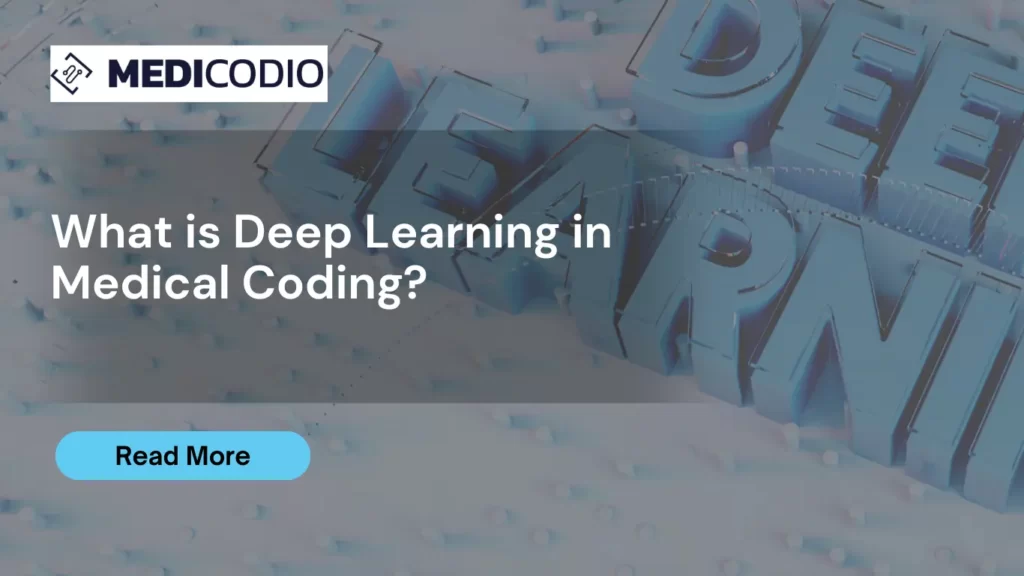Deep learning is a subfield of machine learning that uses artificial neural networks to learn and extract meaningful patterns and features from large amounts of data. Deep learning algorithms learn from large amounts of labeled data. These algorithms are capable of processing vast amounts of information and can identify intricate patterns that may not be apparent to human beings. Let’s now look at what deep learning in medical coding means.
In medical coding, the neural network and deep learning approach aims at learning complex functions to match a patient’s information to the appropriate set of medical codes. Deep learning models can be trained using electronic health records (EHRs), medical literature, and other relevant healthcare data. Deep learning methods are easily applicable while achieving a better overall performance. Hence, it can be well utilized to automate and improve the medical coding process.
WHAT MAKES DEEP LEARNING GOOD FOR MEDICAL CODING?
Traditional medical coding is a manual and time-consuming task that requires skilled coders to review medical records and assign appropriate codes based on established coding guidelines. By leveraging deep learning, computer algorithms can be trained to recognize patterns in medical records and automatically assign appropriate codes, thereby streamlining the coding process and reducing the burden on human coders.
Some other benefits of deep learning in medical coding are outlined below:
Natural Language Processing (NLP): Deep learning techniques, combined with NLP, can be used to extract relevant information from unstructured clinical notes and narrative text. By understanding the context and semantics of the text, deep learning models can assist in identifying key diagnoses, procedures, and other relevant details needed for coding.
Automatic Code Assignment Deep learning models can be trained on large datasets of medical records, clinical documentation, and corresponding codes. By learning from these examples, the models can automatically assign appropriate codes to new medical records, reducing the manual effort and potential errors involved in the coding process.
Code Prediction and Suggestions Deep learning models can analyze historical coding data and patterns to predict likely codes for a given medical record. These models can also provide suggestions to human coders, assisting them in the coding process and improving accuracy. They can recognize patterns in clinical notes, laboratory results, imaging reports, and other medical information to generate accurate codes for diagnoses, procedures, and treatments.
Fraud and Error Detection Deep learning algorithms can be employed to detect potential coding errors, anomalies, and instances of fraud in medical billing data. By analysing patterns in coding and billing records, these models can identify discrepancies and alert healthcare organizations to potential issues.
Clinical Documentation Improvement (CDI) Deep learning models can analyse clinical notes and provide suggestions for improving the documentation to ensure accurate and complete coding. This can help healthcare providers capture all relevant information and improve coding accuracy.
The application of deep learning in medical coding is an evolving field, and ongoing research and development are being conducted to refine the algorithms and improve their performance in real-world healthcare settings. It’s important to note that while deep learning has the potential to enhance medical coding processes, it is not meant to replace human coders but rather assist them in their work. Human expertise remains critical for validation, quality control, and handling complex coding scenarios.
To learn more about how AI and Robotics are playing a significant role in the healthcare Sector: Click here!
You can now experience the power of AI in medical coding with CODIO’s Free 30-day trial!
Try now: https://lnkd.in/dYniNRke





